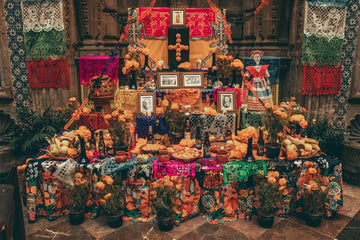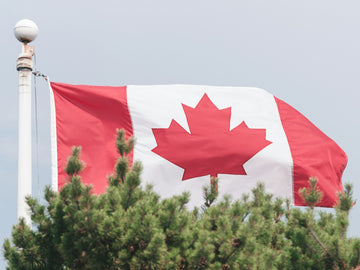As autumn leaves paint the world with hues of red and gold, another vibrant and meaningful celebration unfolds in Mexican culture—Dia de los Muertos, the Day of the Dead. This unique and deeply rooted tradition goes beyond the surface-level imagery often associated with fall and offers a profound opportunity to honor ancestry, celebrate life, and embrace Mexican heritage. In this blog post, we'll delve into the rich tapestry of Dia de los Muertos, exploring its traditions, symbolism, and the special connection it shares with the fall season. Join us as we unravel the threads that weave together this beautiful celebration.
Understanding Dia de los Muertos
Dia de los Muertos, or Day of the Dead, is a Mexican holiday that spans from October 31st to November 2nd. Contrary to common misconceptions, Dia de los Muertos is not a Mexican Halloween. It is a deeply spiritual and familial observance rooted in indigenous traditions, honoring loved ones who have passed away.
Altars, Ofrendas, and Symbolism
Central to Dia de los Muertos are the ofrendas, or altars, meticulously adorned with marigolds, candles, incense, photographs, and the favorite foods and drinks of the departed. These ofrendas are created with love and care, acting as a bridge between the living and the dead. Each element holds profound symbolism, with marigolds representing the fragility of life, candles guiding the spirits back to the world of the living, and sugar skulls embodying the sweetness of remembrance.
Fall Rituals and Connection to Nature
Dia de los Muertos aligns with the natural rhythm of fall, a season often associated with the cycle of life and death. The falling leaves symbolize the impermanence of life, mirroring the essence of Dia de los Muertos. The scent of copal incense, a common offering during this celebration, permeates the air, connecting participants to the earth and the spiritual realm.
Doshi's Vegan Values and Cultural Respect
As a vegan fashion accessories brand, Doshi understands the importance of cultural sensitivity. Dia de los Muertos is distinct from Halloween, and drawing comparisons between the two can be considered offensive. While Halloween has its own cultural significance, Dia de los Muertos holds a unique place in Mexican heritage, and it's crucial to appreciate and respect the depth of its traditions.
Celebrating Dia de los Muertos
Dia de los Muertos offers a profound opportunity to honor the departed, celebrate life, and connect with Mexican traditions deeply embedded in the fall season. As we create our ofrendas and share in the beauty of this cultural celebration, let us also appreciate the distinctiveness of Dia de los Muertos and ensure that our understanding and observance are rooted in respect for its rich traditions.
This fall, Doshi invites you to embrace the beauty of Dia de los Muertos, not only as a celebration of life and ancestry but also as a reflection of the values that connect us all. Our vegan handbags, wallets, and belts are crafted with respect for animals and the planet, embodying the essence of harmony and interconnectedness celebrated during Dia de los Muertos.
Join Doshi this fall in embracing Dia de los Muertos—an occasion that not only resonates with Mexican heritage but also aligns with our shared values of compassion and cultural appreciation.









